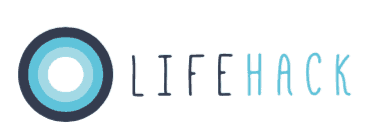A Prototyping Mindset in Practice : Case Study on YOMO
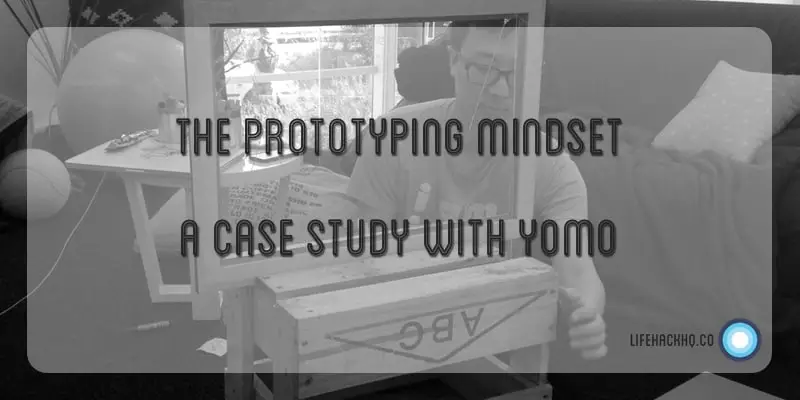
For the best part of 2 years now, Lifehack has been experimenting with using Design processes to empower people to create new wellbeing interventions. Sometimes those Design processes are in the form of experiential weekends, sometimes they’re evening design sprint sessions, sometimes they sit inside longer programmes we run such as Lifehack Labs.
One of the most vital aspects we have struck on after many conversations and events, is a shift in mindset for people. Shifting from an “Idea Mindset” to a “Prototyping Mindset” – from “knowing” to “testing”.
Traditionally in society we’ve idolised Ideas, and people who have them. We reward people for coming up with solutions, and this has led to people coming up with them in a vacuum – often without the input or insights of people who will benefit (or suffer…) from them. Entering into a Prototyping Mindset makes us admit that whilst we may have a hunch, essentially we don’t know whether or not our ideas are actually going to work for people – unless we test them. Prototyping is the process of creating low fidelity versions (sketches, clay models, models made of boxes and more) as well as high fidelity versions (basic apps, websites and more) so that you can learn something.
Here’s a great article on Prototyping Mindset for social innovation.
To give you a sense of the work that’s needed to generate a wellbeing tool of use, here’s a short case study on YOMO, one of the ventures which emerged from Lifehack Labs.
Following are the prototypes which YOMO created, and some of what they learnt from them (in their words). The insights which they’ve collected over time from about 80 users have moulded the service which they have available today, and their future road map of features and prototypes.
“Breathe” installation on waterfront with ABC crates
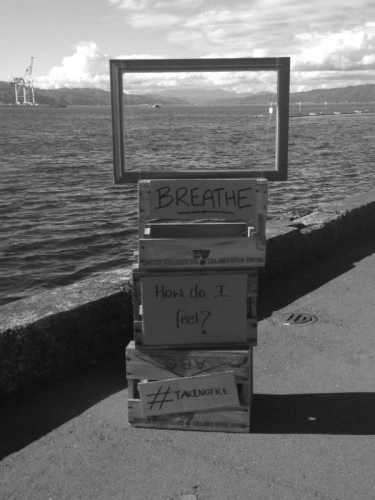
People walking along the waterfront were a lot more curious than we thought. It also proved to us that people take a while to observe the installation before interacting with it.
Podcast on Website (original first podcast straight after Lifehack)
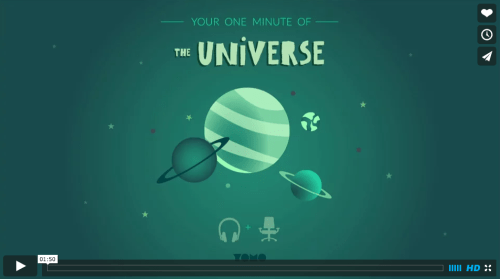
We received some great feedback from users that listened to the first podcast. The feedback was mainly content related. Small things like “I don’t like the voice actor”.
Crowd Funding Campaign
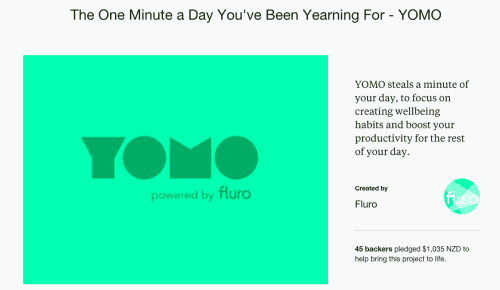
After a successfully funded crowdfunding campaign we learnt that even a small marketing push to personal networks of family and friends can have a massive impact.
Tipi at Labs Closing Night
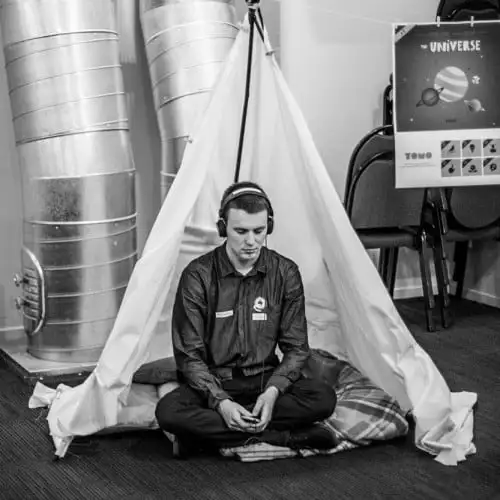
Giving people a full immersion experience of the product can put them in a different atmosphere and they experience something unique. From this experiment we started to learn the importance of gathering feedback and working with others face-to-face.
LTD ‘focus’ sessions
After attempting to prove the effectiveness of small mindfulness sessions, we quickly found that we did not have a large sample size to draw a conclusion from our data and we did not get the conclusive result we were looking for.
Focus sessions on Cuba Street
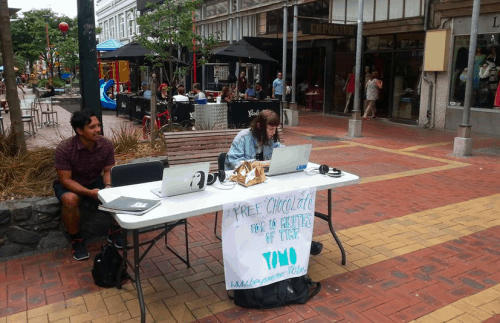
During this event on Cuba Street we had some basic marketing material(posters and cards to hand to people). We were blown away with the feedback we received on social media after the event from people that didn’t even interact with us face-to-face.
Preorder Campaign
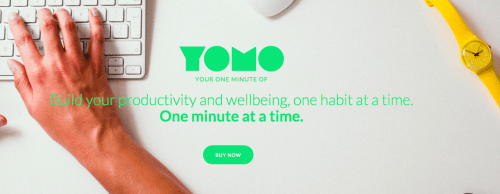
Our main learning from our pre order campaign was that you need a plan before releasing a product, even if the product is for testing. If we had set up a basic marketing plan before releasing the website we would have had a better result.
MVP x5 of Podcast delivery
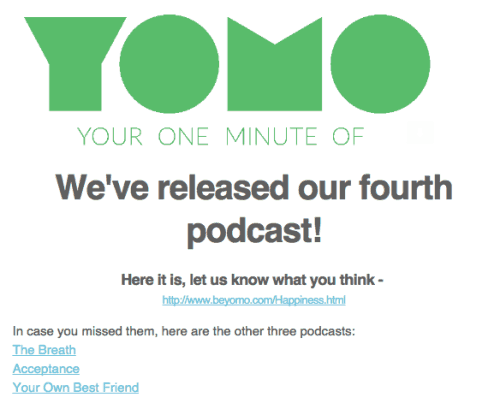
Very much like our pre order campaign we needed a plan. We needed a way to support our users while releasing the podcasts and a better way to receive feedback. The feedback that we did receive was of huge benefit and the feedback after every podcast shaped the next release.
Big thanks to the team at YOMO for sharing these insights with us.
We hope this post has helped you understand how Lifehack supports people to engage in non-linear prototyping. Whilst we’re working on Lifehack’s design model, here’s some other resources which can help you with nurturing your own Prototyping Mindset:
